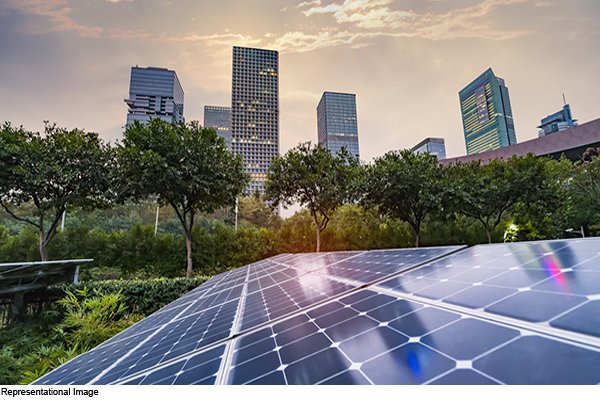Even though all countries are reaping the cut in carbon emissions, the reality is that they need to increase the rate of this reduction tenfold. In fact, a new research shows that even though 64 countries cut their CO2 emissions significantly during 2016-2019, they made this cut to achieve the targets set under the Paris Agreement to combat climate change. A tenfold increase in rate is required.

This first global assessment, conducted by researchers from East Anglia (UEA), Stanford University and the Global Carbon Project, examined progress in the reduction of CO2 emissions since the Paris Agreement was accepted in 2015. And the results of his investigation make it clear before the important United Nations Climate Summit (COP26) in November that much effort is still needed.
The annual reduction of 0.16 billion tonnes of CO2 annually is only 10 percent of the 1-2 billion tonnes of CO2 needed annually to combat climate change.
And while there was a reduction in emissions in 64 countries, it recorded an increase in 150 countries. Globally, emissions increased by 0.21 billion tonnes of CO2 per year during the years 2016–2019, compared to 2011–2015.
These findings from scientists, ‘Fossil CO2 emissions since the Covid era’, are published today in Nature Climate Change.
In the year 2020, the lock down to tackle the Covid-19 pandemic resulted in a reduction of 2.6 billion tonnes of CO2 in global emissions, which is about 7 percent below 2019 levels. Researchers say that 2020 was simply a ‘pause button’ that cannot be sustained in practice because the world is heavily dependent on fossil fuels. The policy of lock down is neither a sustainable solution to the climate crisis nor desirable.
Corinne Le Curre, Professor of the Royal Society at the UEA (UEA) School of Environmental Sciences, led this analysis. He responded by saying, “Since the Paris Agreement, countries’ efforts to cut CO2 emissions are starting to show good results, but actions are not yet on a much larger scale than expected and emissions are still rising in many countries.” is.”
He further states, “The decline in CO2 emissions from Covid-19 responses highlighted the scale of action and the international adherence required to combat climate change.” Now we need large-scale works that are good for human health and good for the planet. It is in everyone’s interest to create better ways to trigger immediate change in clean energy. “
Under the ambition of the Paris Agreement, limiting global warming to within the range below 1.5 ° C to 2 ° C requires an annual reduction of 1-2 billion tonnes of CO2, not just this decade, but even further. The world has warmed more than 1 degree Celsius since the Industrial Revolution due to the emission of greenhouse gases from human activities.
Of the 36 high-income countries, 25 showed a reduction in their emissions during 2016–2019 compared to 2011–2019, including the United States (average -0.7 percent annual reduction), the European Union (-0.9 percent), and UK (-3.6 per cent). Emissions also decreased when accounting for the carbon footprint of imported goods produced in other countries.
Emissions reductions of 99 upper-middle-income countries were observed during 2016–2019 compared to 2011–2015, suggesting that emissions reduction is now underway in many countries around the world. Mexico (-1.3 percent) is a notable example in that group, while China’s emissions rose by 0.4 percent, much lower than the 2011-2015 annual growth of 6.2 percent.
A growing number of climate change laws and policies have played an important role in curbing emissions growth during 2016–2019. There are now more than 2000 climate laws and policies worldwide.
A complete return to previous CO2 emission levels in 2021 seems unlikely.
However, the authors state that unless the Covid-19 recovery dictates investment in clean energy and the green economy, emissions will begin to rise again in a few years. The nature of the disruption in 2020, particularly affecting road transport, means incentives to accelerate the large-scale deployment of electric vehicles and also encourage walking and cycling in cities, and this is making the public Health will improve. Flexibility of renewable energy in crisis, falling costs, and air quality benefits are additional incentives to support large-scale deployment.
In contrast with climate commitments in most countries, including the United States and China, Covid will continue to be dominated by massive amounts of fossil fuels. The European Union, Denmark, France, the United Kingdom, Germany and Switzerland are among the few countries to have implemented substantial green stimulus packages with limited investment in fossil-based activities so far.
Stanford University professor Rob Jackson co-authored the study. He said, “Countries have achieved net zero output within decades.”

